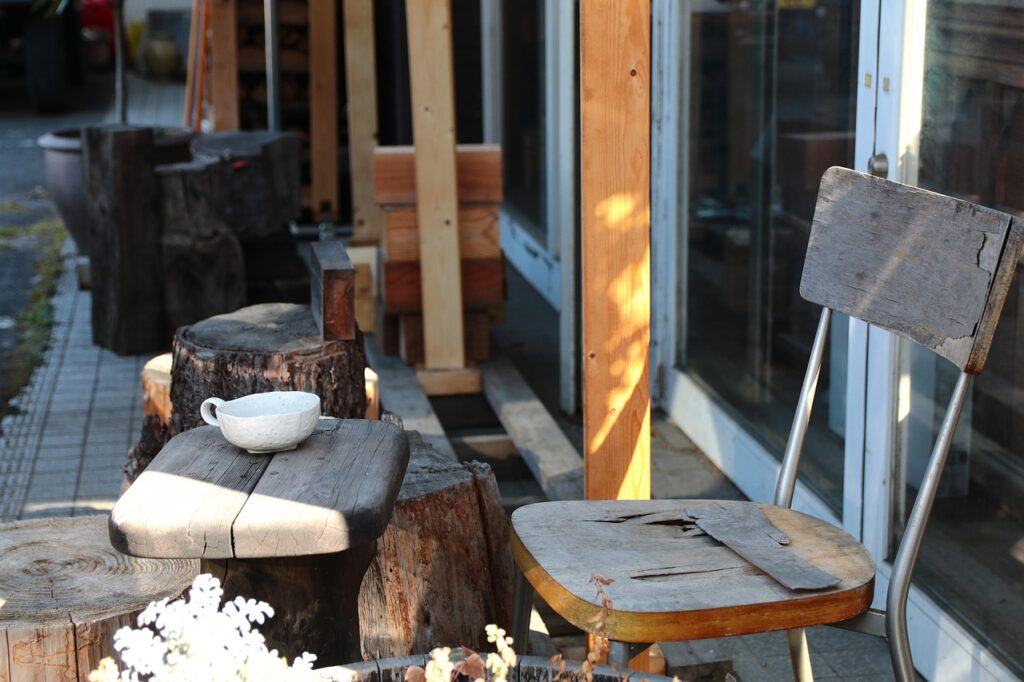From Tokyo to the World! How Second-Hand Furniture Helps Save the Planet
By:
MerxWire
August 24, 2025 at 08:25 AM EDT
As sustainability awareness rises, more people are choosing to furnish their homes with pre-loved items—cutting carbon emissions and giving the world’s forests a chance to breathe.  BOSTON, MA (MERXWIRE) – On the streets of Tokyo, it’s not unusual to see young people gathered around a vintage coffee table, closely examining the curvature of its legs and the subtle marks of time. Their purpose may not be affordability, but rather a desire to bring warmth and authenticity into their homes—a choice less about newness, more about character. In Japan, this kind of “choice” has become part of everyday culture. According to industry data, the country’s second-hand goods market surpassed 3.1 trillion yen in 2023, reflecting a 7.8% increase from the previous year. Branded items alone accounted for 365.6 billion yen, up 19.4% year-on-year. By 2030, the market is expected to exceed 4 trillion yen. This growth is not only driven by economic factors but also reflects a generational shift in values—toward environmental consciousness, aesthetic living, and mindful consumption. The furniture industry plays a significant role in global forest depletion and carbon emissions. Data from Global Forest Watch shows that 15 to 18 million hectares of forest are lost annually due to various land uses, including furniture manufacturing. Moreover, the production of a single sofa can emit up to 47 kilograms of CO₂—the equivalent of burning roughly 5.3 gallons of gasoline. This environmental cost is one of the main reasons why more consumers are turning to second-hand furniture. In contrast, second-hand furniture has virtually no environmental footprint. Having already completed its production cycle, its reuse avoids additional resource extraction while significantly reducing emissions from transportation and processing. Many vintage pieces reentering the market today preserve the craftsmanship of their era and gain added value through their rarity and individuality. Every act of reuse is a small but meaningful step toward a greener planet. Beyond traditional resale, emerging design brands are innovating through furniture refurbishment and modular design. By using reclaimed wood and collaborating with local workshops, these makers create pieces that are easy to repair and disassemble, extending product lifespan and minimising waste. This approach redefines the value of furniture—not by its novelty, but by its carbon footprint, resource origin, and potential for regeneration.  Globally, billions of trees are felled each year, with the furniture industry consuming a substantial share of that wood, placing a heavy burden on forests. In contrast, the world of second-hand furniture offers a gentler path forward. These items require no fresh logging, no high-energy production, and carry no added carbon burden. Once forgotten in attics, antique furnishings are now being reclaimed and repurposed, enriching new lives while offering the planet a much-needed pause. More NewsView More
Power On: Applied Digital’s First AI Data Center Goes Live ↗
Today 16:11 EST

Alphabet: The AI Leader Best Positioned to Dominate 2026 ↗
Today 15:07 EST

2 Reasons to Load Up on Fiserv, 1 to Stay Away ↗
Today 10:41 EST
Via MarketBeat
Tickers
FISV

3 Stocks to Buy for the Evolution of AI Infrastructure ↗
Today 8:39 EST

How Semtech’s Data Center Chips Are Powering the AI Boom ↗
Today 7:25 EST
Recent QuotesView More
Stock Quote API & Stock News API supplied by www.cloudquote.io
Quotes delayed at least 20 minutes. By accessing this page, you agree to the Privacy Policy and Terms Of Service.
© 2025 FinancialContent. All rights reserved.
|